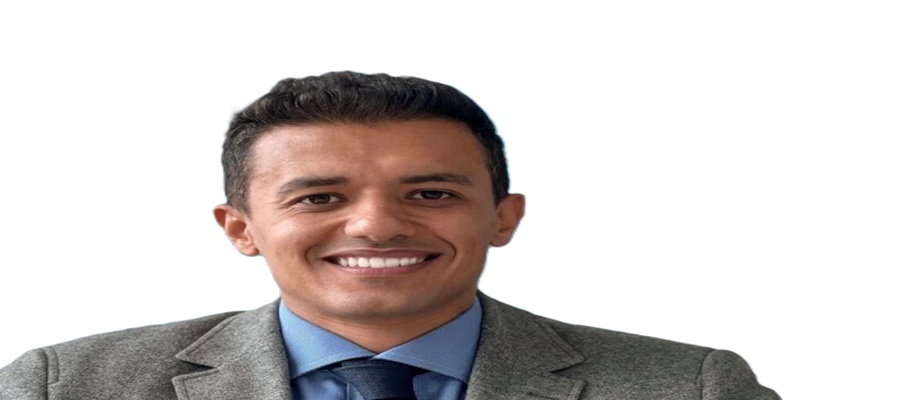Telecom
YouTube Music Announces the Global Foundry Class of 2022 with Black Sherif and Joeboy joining the program


The Foundry program which is aimed at assisting the artists build sustainable careers on their own terms was created in 2015 and has so far supported 250 independent artists.
Alumni include Arlo Parks, beabadoobee, Dave, Dua Lipa, Clairo, ENNY, Eladio Carrion, girl in red, Gunna, Japanese Breakfast, Kenny Beats, Natanael Cano, Omar Apollo, Rema, Rina Sawayama, ROSALÍA, Saba, Snail Mail, Tems, Tenille Arts and many more talented musicians.
Foundry artists are recognised for their storytelling, innovative approach to music and viewed as the next generation entertainers.
YouTube Artist Partnerships Lead, Naomi Zeichner shared, “It’s no small task to be an artist in 2022, working to find stability, fulfillment, and fans who get it.
Foundry celebrates the courage of independent artists and the communities that surround them. Our global team is lucky to be their champion and reduce barriers on their journey, every step of the way.”
The 2022 Foundry Class reinforces YouTube’s commitment to supporting Sub-Saharan artists as next generation global music stars; playing a part in developing individual talent in the region.
The Foundry programme ensures that artists can be independent and still have a successful career in music with the support of platforms like YouTube and this year will power two programs, the Foundry Class of 2022 and the independent release support.
Joeboy said, “Being an independent artist simply requires me to be at the center of all of my dealings as a creative. Aside from creating the music, I have to carry out due diligence to make sure I am making the right decisions every now and then.”
SSA YouTube Music Lead, Addy Awofisayo shared, “We believe that lowering the barrier to entry that unlocks opportunities for music artists to create and connect with a global audience is crucial. But beyond that, Foundry will assist the music artists participants in navigating a new increasingly digital industry as they connect with fans and generate revenue.”
Foundry is designed for independent artists who have a vision for their own success and to help them navigate the demands of today’s music industry. YouTube provides partner strategy support, marketing promotion, and seed funding for content development that can be used for experimenting with new music to diversifying video creation formats.
Black Sherif said, “Success as an independent artist is connecting with one more person on any level through my music. Once that is constantly achieved, in my opinion, everything else will follow. Being a Foundry artist for me means a strong global platform with support to visually take my expression to the next level and reach more people in the process.”
Below is the full list of the Foundry Class of 2022:
Name | Country |
United States | |
United States | |
Germany | |
Brazil | |
United States | |
South Korea | |
Ghana | |
Mexico | |
United States | |
United Kingdom | |
Australia | |
Japan | |
Nigeria | |
Colombia | |
France | |
Brazil | |
India | |
United States | |
United States | |
Canada | |
India | |
United Kingdom | |
Netherlands | |
Canada | |
Canada | |
United States | |
United States | |
United States | |
United Kingdom | |
Mexico |
Telecom
Spacecoin Secures Licenses to Roll Out Satellite Connectivity in Nigeria, Kenya

Spacecoin, US-based, has announced the signing of recent agreements with local authorities and operators to launch satellite connectivity pilot projects in Africa.

The initiatives, focused on Kenya and Nigeria, aim to serve areas where terrestrial networks remain limited or unavailable.
n Kenya, Spacecoin has obtained a transmission license from the Communications Authority, allowing it to test satellite-based solutions for connectivity and Internet of Things (IoT) monitoring, particularly in rural and peri-urban areas with limited internet access.
According to the Kenyan regulator, internet penetration remains below 50% of the population, despite mobile penetration exceeding 130%.
In parallel, the company is continuing operations in Nigeria under an existing license issued by the Nigerian Communications Commission (NCC).
This authorization supports initiatives aimed at delivering affordable broadband connectivity to isolated and underserved communities.
Spacecoin’s approach is based on a decentralized satellite network using nanosatellites in low Earth orbit (LEO).
Combined with blockchain-based protocols, this architecture is intended to offer more flexible and cost-effective connectivity services than traditional networks, while also enabling the integration of IoT solutions for a range of uses, from smart agriculture to infrastructure monitoring.
These projects are part of a broader strategy to help narrow Africa’s digital divide, where a significant share of the population still lacks access to reliable internet services.
Satellite technology is increasingly viewed as a complement to terrestrial infrastructure, particularly in hard-to-reach areas where deployment costs and geographic constraints remain high.
Beyond Africa, Spacecoin is also running pilot projects in Asia, working with local partners to test the viability of its model across different regulatory and geographic environments.
According to the company’s management, growing interest from regulators reflects a shift toward solutions capable of reaching populations that have long been excluded from internet access.
Telecom
AVEVA Names Khaled Salah Vice President for Africa to Drive Growth

AVEVA, a global leader in industrial software, driving digital transformation and sustainability, today announces the appointment of Khaled Salah, 37 years old, as Vice President of Africa.

Khaled Salah
In this new role, he will be responsible for about 30 employees to ensure the successful implementation of AVEVA’s growth strategy. Khaled Salah will report directly to Jesus Hernandez, SVP of the EMEA region.
A 15-years + career across different industries and domains
With a MBA in management from the Warwick business school, UK, and a master’s degree in engineering from Ain Shams university in Egypt, Khaled Salah is an active advocate for driving sustainable progress in the industrial sector. With Sustainability in mind, Khaled is keen on making a positive business impact, while fostering progress for people and the planet.
He started his career at Schneider Electric, in 2013 in the global supply chain and evolved through various roles such as Europe procurement and supply chain strategy Manager, and Global Commercial strategy Director for the industrial automation business. Khaled Salah has developed a strategic understanding of all those fields.
After 12 years in Schneider Electric, Khaled joined AVEVA in 2022 to lead AVEVA and Schneider Electric global strategic partnership, across all industries managing a team of 30 people.
He has led the introduction of new AVEVA software solutions to initiate and develop significant growth areas across all Schneider Electric verticals.
Ambitious plans for AVEVA in Africa
In addition to his current role as AVEVA and Schneider Electric partnership Vice-President, Khaled now takes over the management of AVEVA’s activities in Africa.
Jesus Hernandez, SVP of the EMEA region says: “Africa is a strategic region for AVEVA. In this major industrial market, customers, world leaders in the fields of Energy, Metal & Mining, Chemicals, and Water, are looking for AVEVA’s expertise to accelerate and drive their digital transformation and sustainability strategies, as well as their energy transition projects.
“Khaled Salah’s qualities of leadership in a global environment will benefit his team spread across 12 countries including Algeria, Morocco, Egypt, Kenya, Nigeria, and South Africa.”
Motivated by the prospect of capitalizing on the talent of his team to strengthen AVEVA’s presence in Africa in the years to come, Khaled Salah says: “Helping my team realize their professional potential is close to my heart.
“We will work together to support and accelerate the digital transformation of industries in Africa, in particular through CONNECT, our industrial intelligence platform, with the support of our ecosystem of partners. »
Telecom
Google Report: Nigeria Leads Global AI Adoption in Learning, Entrepreneurship

A Google-Ipsos report reveals Nigerians topping global AI usage at 88%, surpassing the 62% worldwide average, with sharp rises in education and business applications.

“Our Life with AI: Helpfulness in the hands of more people” shows 93% of Nigerians using AI for learning complex topics versus 74% globally, 91% for work assistance, and 80% for new ventures—nearly double the 42% global rate.
Taiwo Kola-Ogunlade, Google’s West Africa Communications Manager, stated: “Nigerians are creatively using AI to unlock opportunities for learning, growth, and economic empowerment, shaping their future with technology.”
Key findings highlight 91% viewing AI positively for learning access, 95% expecting benefits for students and educators, and strong optimism—80% excited versus 20% concerned, compared to global 53%-46% split. Frequent users show 90% excitement

 E-Financial3 days ago
E-Financial3 days agoHere Are Nigerian Banks That Have Secured Their Licences

 E-Financial3 days ago
E-Financial3 days agoZenith Bank Top Nigerian Bank Pick Ahead of GTCO, AccessCorp

 Telecom3 days ago
Telecom3 days agoMTN CEO Toriola Hails Nigeria’s Telecom Transformation at MIPAD

 News3 days ago
News3 days agoICPC Charges Ozekhome with Forgery, Corruption Over London Property

 E-Financial3 days ago
E-Financial3 days agoNigeria Processed $92.1Bn Crypto Transactions in 12 Months — PwC

 E-Financial3 days ago
E-Financial3 days agoHow Crypto Criminals Stole $700m from People – often Using Age-Old Tricks

 General News2 days ago
General News2 days agoCybersecurity Firm Detects a Wave of Crypto Phishing Following BlockFi Bankruptcy

 Telecom3 days ago
Telecom3 days agoLebara Launches Agent Registration Portal



























